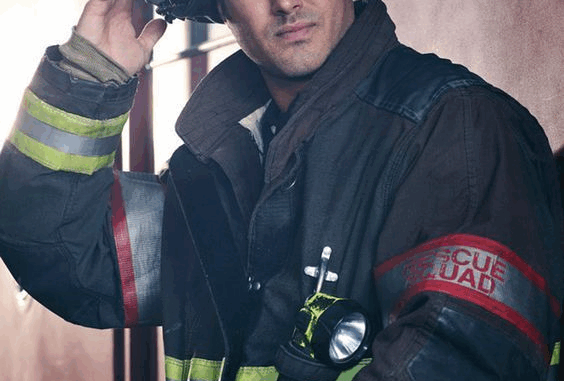
When Taylor Kinney first slipped into the firefighter’s uniform as Kelly Severide on Chicago Fire, he became the beating heart of NBC’s One Chicago franchise. His chiseled jawline, quiet charisma, and smoldering screen presence made him a fan favorite almost overnight. But behind the polished hero image and scripted heroics, sources close to the production claim a storm had been brewing — one so intense that NBC allegedly moved mountains to keep it from reaching the public eye.
The scandal, according to insiders, wasn’t a single explosive moment. It was a slow-burning fuse that finally ignited in the most public way possible. Kinney, whose reputation among cast and crew had long been described as “professional but distant,” reportedly began clashing with production over script rewrites and shooting schedules. Arguments, once kept behind closed doors, started spilling into table reads. On more than one occasion, witnesses recall tense silences after Kinney allegedly called out certain storylines as “ridiculous” or “a waste of Severide’s potential.” For a network that built its brand on ensemble harmony, these public disputes were red flags.
But creative disagreements were just the beginning. Off-set, whispers began circulating about Kinney’s increasingly unpredictable behavior. Paparazzi shots showed him leaving late-night parties in a noticeably altered state. Social media posts — later deleted — hinted at rants targeting unnamed colleagues. One anonymous crew member described a particularly tense day when Kinney arrived hours late to set, only to walk off mid-scene after a heated exchange with a director. “It was like watching someone deliberately test the limits of how far they could push,” the source said.
NBC, aware of how much of the franchise’s appeal rested on Kinney’s star power, allegedly went into damage control mode. Meetings were held not just with publicists, but with showrunners, PR strategists, and even executives from Chicago P.D. and Chicago Med to assess the potential fallout. The fear wasn’t only about one man — it was about the domino effect that losing him could have on the interconnected One Chicago universe. Severide’s absence would leave a gaping hole, and the writers would be forced to scramble to rework multiple overlapping storylines.
Things reportedly came to a head during the filming of a pivotal crossover episode. Multiple crew members claim that Kinney, already in a tense mood, refused to shoot a key scene as written, insisting on changes that would shift the spotlight away from another lead character. The standoff lasted hours, with executives finally agreeing to a compromise just to get the cameras rolling again. But by then, word had reached more than just the production crew.

According to one insider, NBC feared that if details of the conflict leaked, it could spark a media feeding frenzy — the kind that no amount of PR spin could contain. Contracts were reviewed, NDAs reinforced, and select staff were allegedly warned to “forget” certain incidents ever happened. At least one source claims a high-level executive personally called Kinney, reminding him of the terms in his agreement that could be used to sideline him indefinitely if he didn’t cooperate.
Yet, even as the network tried to bury the problem, cracks in the facade became harder to hide. Fans noticed Severide’s reduced screen time in certain episodes. Tabloids picked up on the speculation, running headlines about Kinney’s “mystery absences” and “possible exit” from the show. NBC responded with vague statements citing “personal matters” and “adjusted shooting schedules,” but for those in the know, the tension was impossible to ignore.
Off the record, some crew members expressed frustration at the double standard. “If this were anyone else, they’d have been gone months ago,” one source said. “But Taylor isn’t just another actor — he’s the face of the franchise.”
By the time the next season rolled around, rumors of Kinney’s departure reached fever pitch. Fans flooded social media with theories, some blaming burnout, others pointing to unconfirmed reports of behind-the-scenes blowups. In truth, the exact nature of NBC’s so-called “buried scandal” remains under lock and key. But for those who’ve worked alongside Kinney, the story is far more complicated than simple creative differences or scheduling conflicts. It’s a cautionary tale of how far a network will go to protect its brand, even if it means covering for its biggest star — and how one man’s off-screen drama nearly brought the One Chicago universe to its knees.